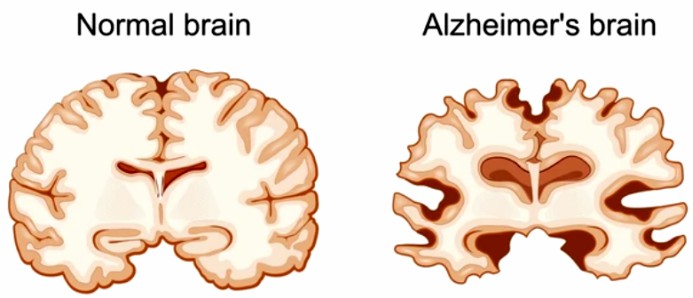Gene Therapy for Alzheimer's Diseases
Inquiry
Alzheimer's Disease (AD) is a neurodegenerative disease characterized by β-amyloid (Aβ) plaque deposition, Tau protein tangles, and chronic neuroinflammation. Gene therapy has become a research hotspot in recent years due to its potential to precisely modulate disease mechanisms. CD Formulation provides comprehensive technical support and solutions for researchers, especially in the development and study of gene therapy formulations for Alzheimer's disease.
Advantages of Gene Therapy for Alzheimer's Diseases
- Precise targeting of pathological mechanisms. By delivering gene editing tools or regulating gene expression, it can intervene in key pathological aspects such as Aβ generation and abnormal phosphorylation of Tau protein.
- Long-term efficacy potential. A single treatment may achieve sustained effects, especially for chronic diseases that require long-term intervention.
- Promote neuroprotection. Gene therapy strategies may enhance neuronal survival and function and improve cognition by increasing the expression of nerve growth factors.

Main Applications of Gene Therapy for Alzheimer's Diseases
Nerve growth factor (NGF) gene therapy
BNN27, a small molecule analog of NGF that can penetrate the BBB, has been utilized to significantly reduce Aβ plaques, inhibit microglia activation, and promote neuronal regeneration in the hippocampus to improve cognitive function in an AD mouse model. In addition, adeno-associated virus (AAV) vectors can carry NGF genes for direct delivery to the brain, and preclinical studies have shown that they can delay neuronal degeneration and repair synaptic connections.
We provide AAV-based NGF gene delivery system optimization services as follows.
- Targeted vector design. Enhancement of BBB penetration by modification of coat proteins.
- Combination therapy development. Multi-gene co-expression vectors combining NGF with anti-inflammatory genes (e.g. IL-10).
Regulates the Aβ transport pathway
Abnormal accumulation of Aβ stems from an imbalance between its production and clearance. Gene therapy intervenes by modulating transporter protein expression or repairing enzyme function. Current studies include the use of gene editing techniques that can upregulate LRP1 or inhibit RAGE expression to reduce Aβ deposition. As well as the use of CRISPR-Cas9 technology can accurately correct gene defects to restore normal APP shear and reduce the production of toxic Aβ intermediates.
We provide the following services for this transporter pathway research.
- CRISPR gene editing platform. Design of sgRNA specific for PSEN1 mutations in familial AD patients.
- Nanoparticle delivery systems. Encapsulation of siRNA targeting the RAGE gene for inhibiting its expression in the brain.
Anti-inflammatory cytokines
Chronic neuroinflammation is driven by microglia overactivation, exacerbating neuronal damage. Gene therapy modulates the immune microenvironment by delivering anti-inflammatory factors, e.g. overexpression of IL-10 inhibits pro-inflammatory factors (e.g., TNF-α, IL-1β), whereas TGF-β promotes the conversion of microglia to a repair phenotype. AAV-mediated IL-10 expression has been shown to reduce inflammatory damage in AD models.
We provide the following service support for this type of research.
- Development of modulatable expression systems. Photoregulated or drug-inducible promoters to achieve temporal release of anti-inflammatory factors.
- Cell-specific targeting. Utilize microglia-specific promoters to ensure that genes are expressed only in target cells, reducing off-target effects.
Our Capabilities of Gene Therapy in Alzheimer's Diseases
- Interdisciplinary teams. Our team of experts, including cutting-edge talents from various fields such as molecular biology, neuroscience, and clinical medicine, collaborate to advance our clients' projects.
- Extensive experience. We have extensive research experience in the field of gene therapy development and can help researchers accelerate the R&D process.
- Advanced technology platform. We have established an advanced technology platform, including rapid identification of potential drug targets and preliminary evaluation using animal models.
- Collaborations and resources. We establish collaborations with universities and research organizations to access the latest research results and technical support.
Explore Our Gene Therapy for Alzheimer's Diseases
Viral Vector Development
Our area of expertise is viral vector development and optimization, with an emphasis on expanding Alzheimer's disease treatment options. We have enhanced adeno-associated virus (AAV) vectors' capacity to target particular brain regions by creating coat proteins for them. Furthermore, we have enhanced the AAV vectors' promoters to enable accurate and effective target gene expression.
Non-Viral Vector Development
Our non-viral vector development services are designed to overcome the challenges associated with viral vector systems. We are committed to improving the transfection efficiency of non-viral vectors to facilitate the advancement of gene therapy drugs and technological innovation. Our services include optimizing liposome compositions to enhance their fusion with cell membranes and functionalizing nanoparticles with specific targeting ligands to improve their deliverability and precision in targeting brain cells.
CD Formulation relies on a strong technology platform and a professional research team dedicated to providing reliable research protocols for the development of gene therapy formulations for Alzheimer's disease. If you are interested in us, please feel free to contact us.
Related Services


